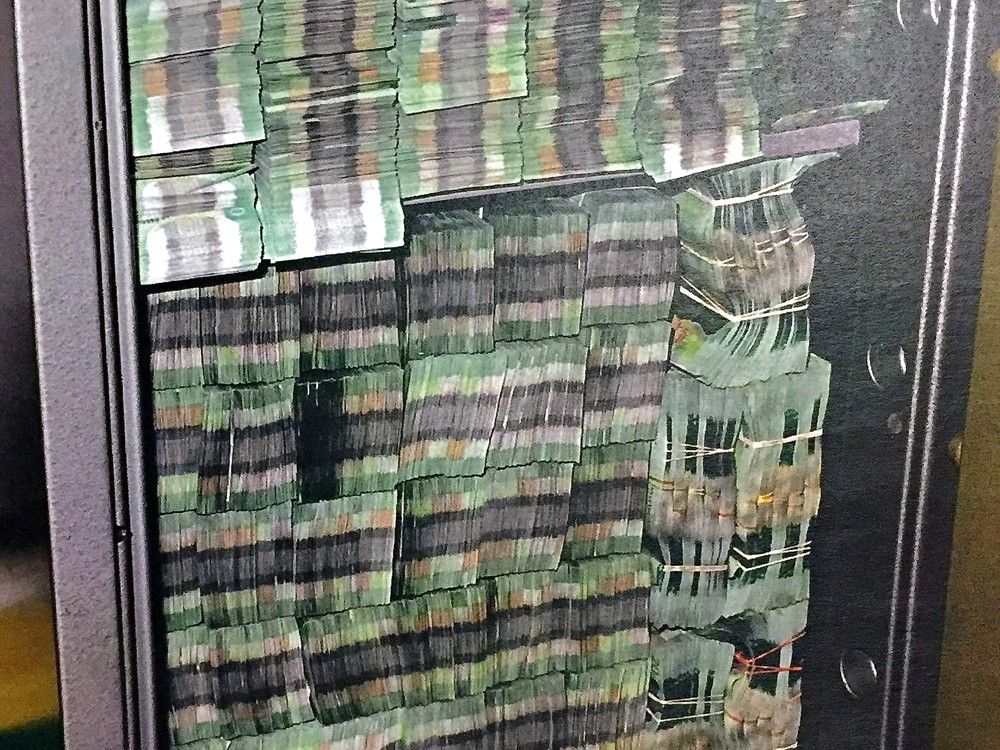
Nearly three years after the Cullen commission into money laundering made two key recommendations, one to create a special investigation unit and the other to create an independent commissioner, neither has been implemented.
And the B.C. government still won’t say whether the two key recommendations will be carried out.
In response to Postmedia News questions this week, the province didn’t answer directly whether it would establish a special investigation unit or an independent anti-money-laundering office of the legislature and a commissioner to head it.
In a written response, the B.C. Finance Ministry would only say it was addressing money laundering by strengthening how it detects, deters and disrupts illicit activity.
“Much of that work is in progress, and we will report publicly on it as it’s completed,” the Finance Ministry said in an email from public affairs officer Buzz Lanthier-Rogers.
When B.C. Supreme Court Justice Austin Cullen, who led the three-year B.C. inquiry, delivered his recommendations in June 2022, he said his first two recommendations were critical to combating money laundering.
Cullen said the specialized unit was needed because the federal government was failing to carry out its responsibility to investigate money laundering. And Cullen was concerned that complex, cross-government efforts would stall over time without permanent oversight from an independent office.
In its response to Postmedia, the Finance Ministry noted that it has created an anti-money-laundering secretariat to co-ordinate the province’s response to money laundering. It includes several Finance Ministry staff, but it isn’t the independent oversight office recommended by Cullen.
In early 2024, Katrine Conroy, then the finance minister, told Postmedia that the province was going to produce an interim report on progress of the Cullen recommendations.
This week, Finance Ministry officials said a public progress report hadn’t been released, adding a record of actions could be found online. The list of actions isn’t a comprehensive examination of progress on all 101 recommendations and includes no mention of the two key recommendations.
Finance Ministry officials didn’t say whether a progress report would be produced.
Sasha Caldera, who helped spearhead a national campaign aimed at beneficial ownership transparency and anti-money-laundering reforms, says the two key recommendations should be implemented.
Money laundering is linked to an influx of illicit drugs, increased crime, inflated housing prices, more mental illness and increased community safety issues, noted Caldera, who is with IMPACT, an anticorruption and natural -resources-governance non-profit.
The independent anti-money-laundering office is important because it provides transparency, public reporting and confidence, and ensures progress, he said.
A specialized investigation unit could help bolster scrutiny of B.C.-specific issues, including money laundering in real estate and casinos, and through ports, he added.
“These institutions would only result in good for everyone, and they need to just finish this,” said Caldera.
The B.C. government has made progress on other recommendations from the Cullen inquiry and other reviews.
Those include creating a beneficial land ownership registry that is free to search and is meant to create more transparency around property deals. B.C. also introduced so-called unexplained wealth orders that can, through court order, force people to explain where their money and assets come from. There have also been changes to tighten the rules for mortgages and mortgage brokers, casinos and real estate agents.
However, these changes don’t address the critical issue of investigating financial crime and ensuring there are police officers with the skills and experience to do that job.
Cullen and other observers and experts say this is particularly important because if money launderers can break the law with impunity, it distorts markets including in real estate, it supports and leads to more criminal activity and it undermines the public’s faith in the justice system. Billions of dollars are estimated to be laundered in B.C. annually.
Money laundering has been in the spotlight in B.C. since at least 2017 when several Postmedia investigations found that Lower Mainland casinos were being used to facilitate the practice. Postmedia also found that money-laundering prosecutions were rare and difficult , and that shell companies and nominee directors were used to hide assets.
Another Postmedia probe found at least $43 million in properties were tied to B.C.’s largest money-laundering case, which failed to lead to a successful criminal prosecution. A 2019 Postmedia analysis of 12 money laundering cases dating back nearly three decades found money is laundered in real estate using a number of mechanisms, often with the help of shell companies, and involving several countries and banks.